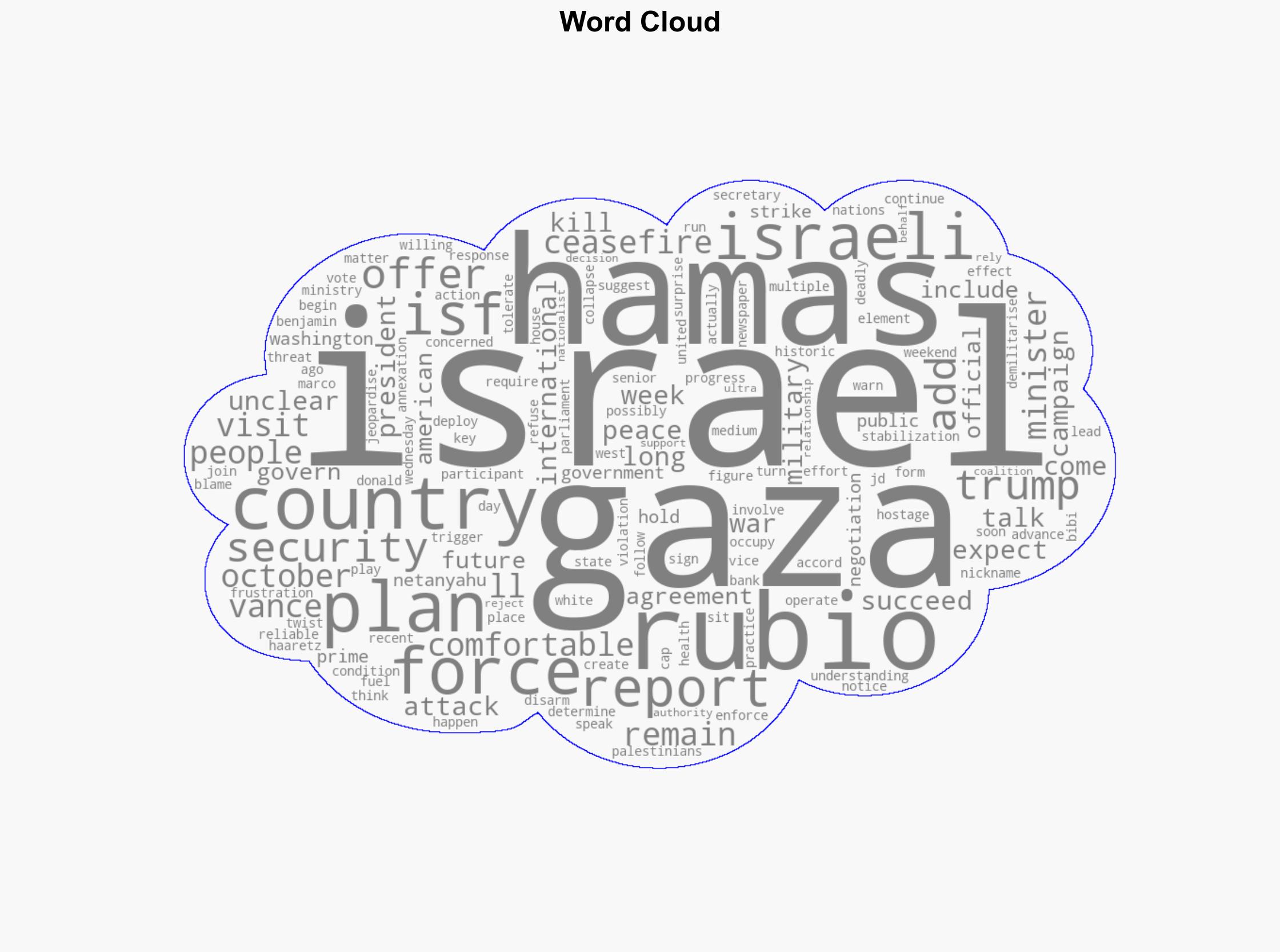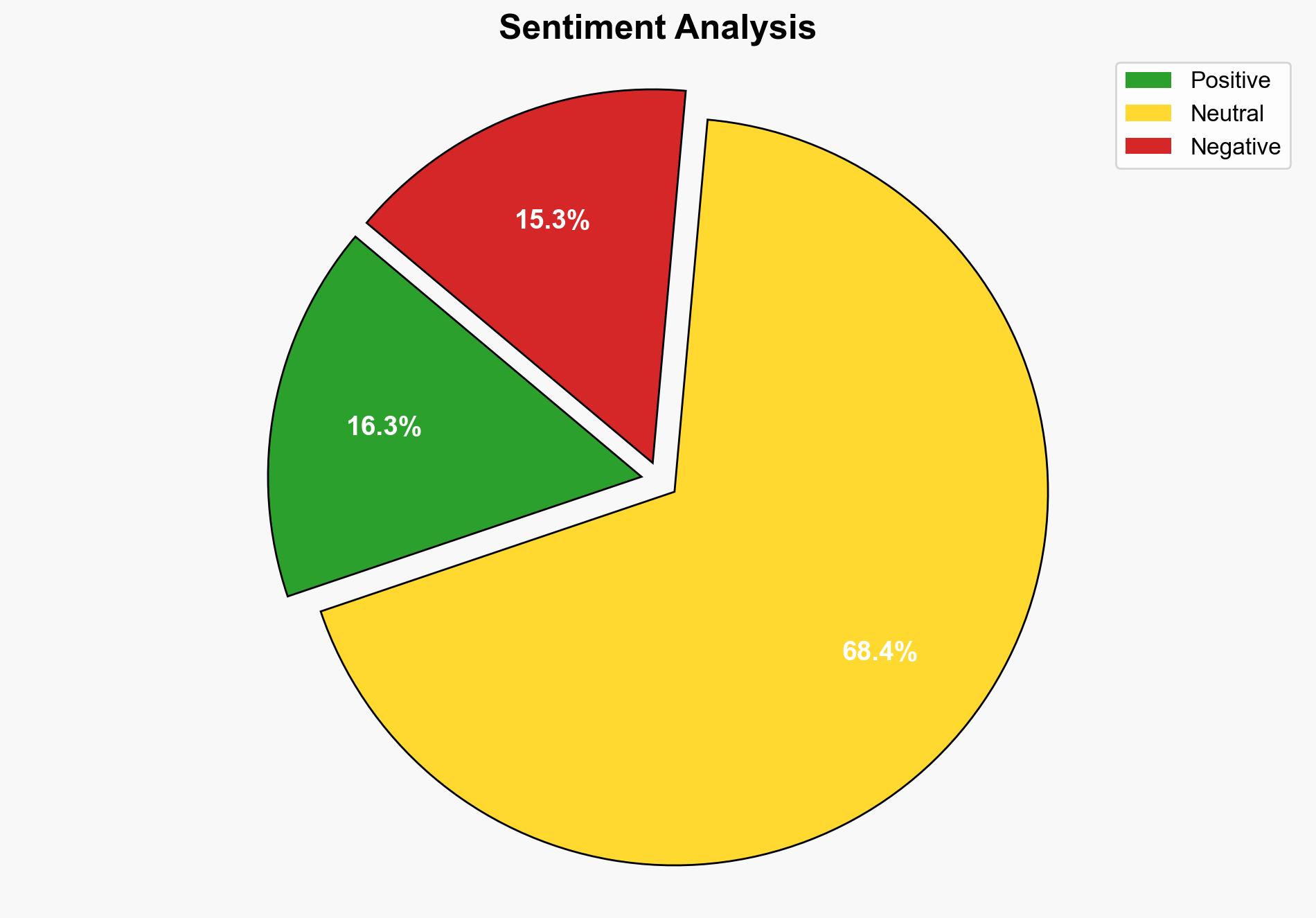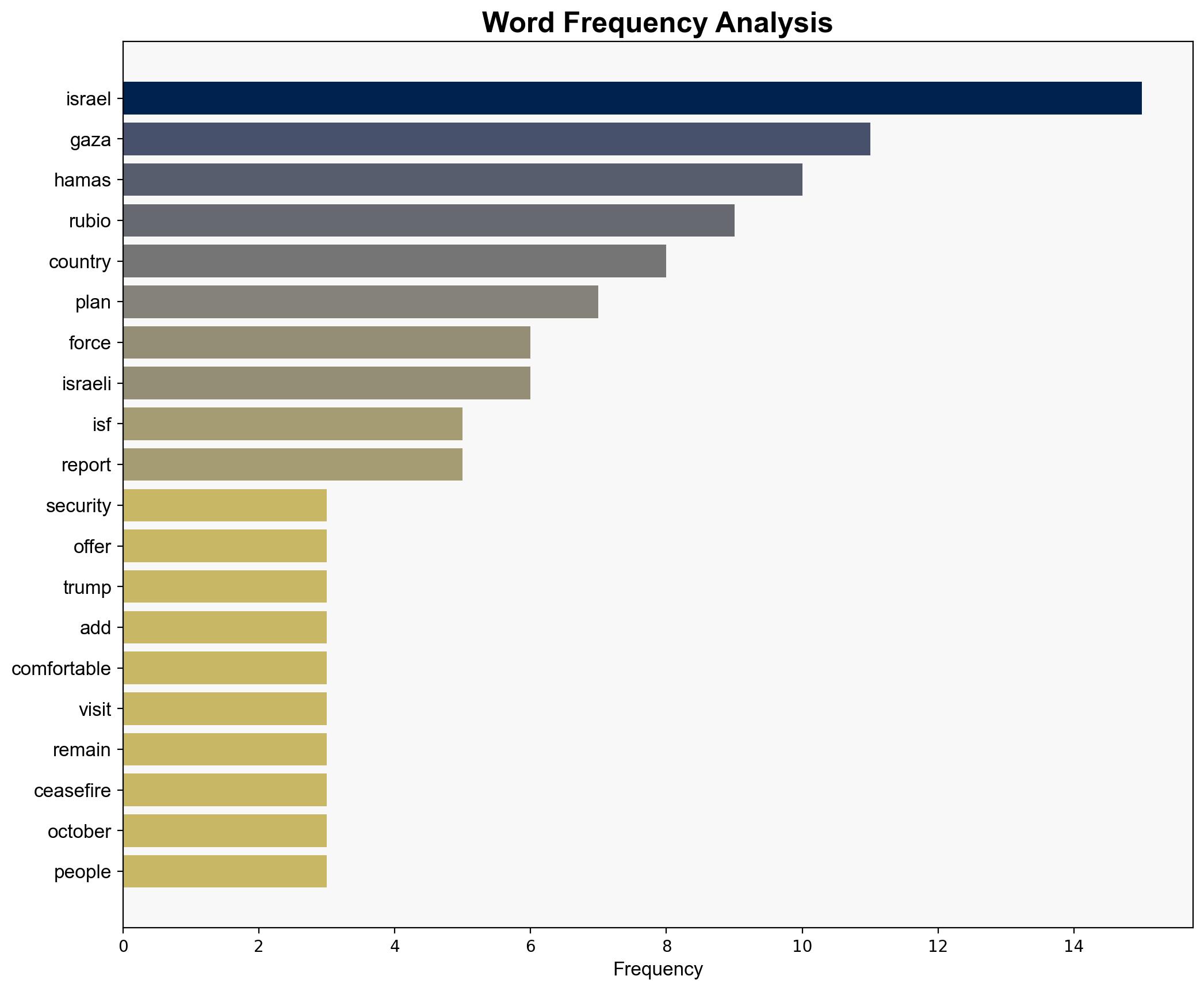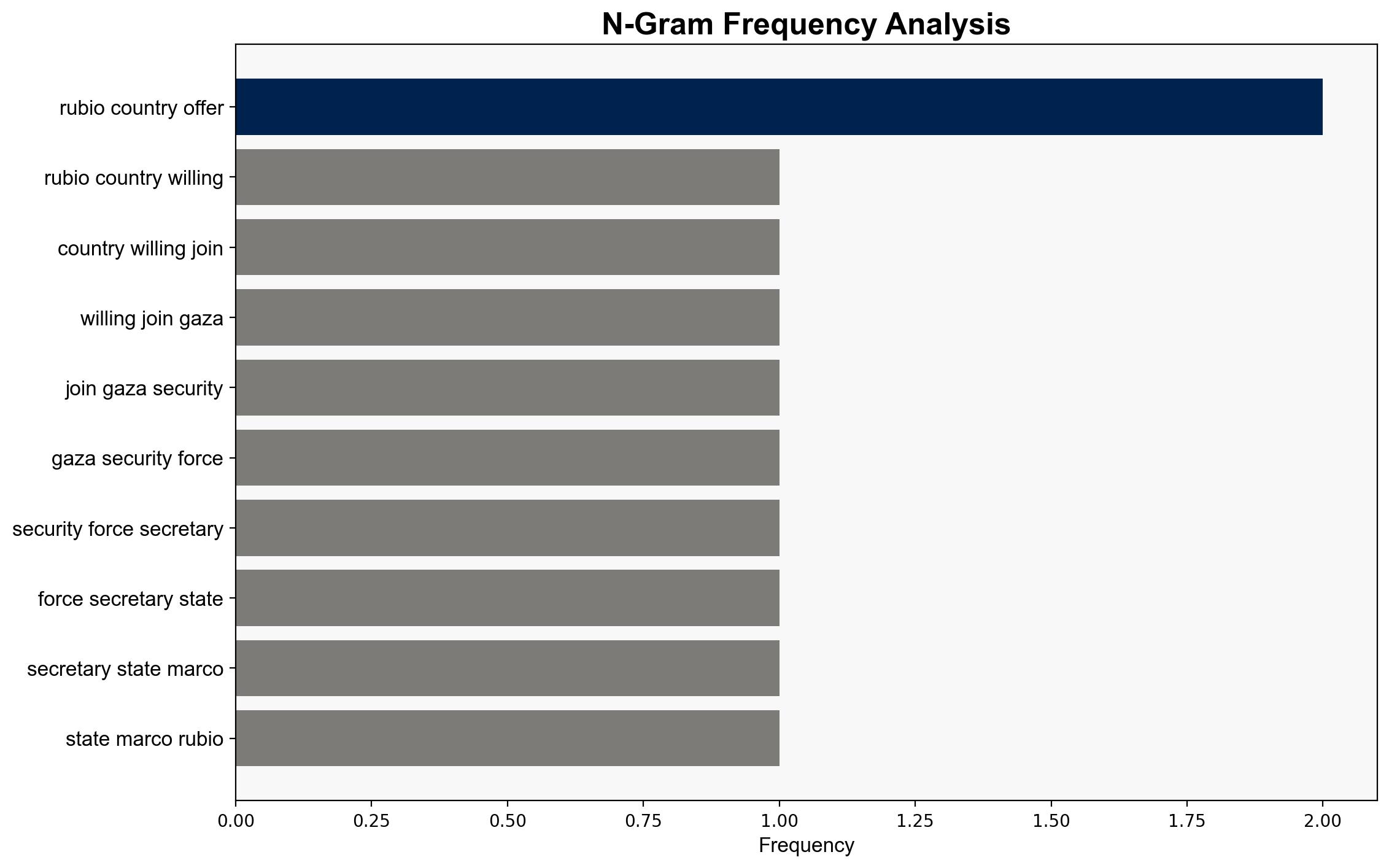Rubio says lots of countries willing to join Gaza security force – BBC News
Published on: 2025-10-24
Intelligence Report: Rubio says lots of countries willing to join Gaza security force – BBC News
1. BLUF (Bottom Line Up Front)
The most supported hypothesis is that the international security force (ISF) for Gaza will face significant challenges in deployment and operational effectiveness due to geopolitical tensions and internal disagreements among stakeholders. Confidence level: Moderate. Recommended action: Engage in diplomatic efforts to align stakeholder interests and prepare contingency plans for potential escalation.
2. Competing Hypotheses
Hypothesis 1: The ISF will be successfully deployed and contribute to stabilizing Gaza, leading to a sustainable ceasefire and progress in the peace plan. This hypothesis assumes international cooperation and effective negotiation with Hamas.
Hypothesis 2: The ISF deployment will be hampered by geopolitical tensions, lack of consensus among participating countries, and resistance from Hamas, leading to a fragile ceasefire and potential escalation of conflict. This hypothesis considers the historical volatility of the region and current political dynamics.
Using ACH 2.0, Hypothesis 2 is better supported due to the historical precedent of failed peace initiatives in the region, the complexity of disarming Hamas, and the potential for Israeli domestic politics to influence military actions.
3. Key Assumptions and Red Flags
Assumptions:
– Countries involved in the ISF will act in good faith and prioritize peace.
– Hamas will engage in negotiations and comply with disarmament requirements.
– Israeli domestic politics will not derail international efforts.
Red Flags:
– Reports of Israeli frustration with the U.S. and potential unilateral actions.
– Historical resistance from Hamas to disarmament.
– Lack of clarity on the ISF’s operational mandate and rules of engagement.
4. Implications and Strategic Risks
The deployment of the ISF could lead to increased geopolitical tensions if countries involved have conflicting interests. There is a risk of escalation if Hamas perceives the ISF as a threat or if Israeli actions are seen as provocative. Economic impacts could arise from disrupted trade routes or increased military spending. Cyber threats may emerge as actors seek to influence public perception or disrupt operations.
5. Recommendations and Outlook
- Engage in multilateral diplomacy to align the interests of ISF-contributing countries and ensure clear operational mandates.
- Develop contingency plans for potential escalation scenarios, including increased military presence or economic sanctions.
- Scenario Projections:
- Best Case: Successful ISF deployment leads to a lasting ceasefire and progress in peace negotiations.
- Worst Case: ISF deployment fails, leading to renewed conflict and regional destabilization.
- Most Likely: ISF faces operational challenges, resulting in a fragile ceasefire and ongoing negotiations.
6. Key Individuals and Entities
– Marco Rubio
– Donald Trump
– Benjamin Netanyahu
– JD Vance
– Hamas
7. Thematic Tags
national security threats, geopolitical tensions, peacekeeping operations, Middle East conflict




